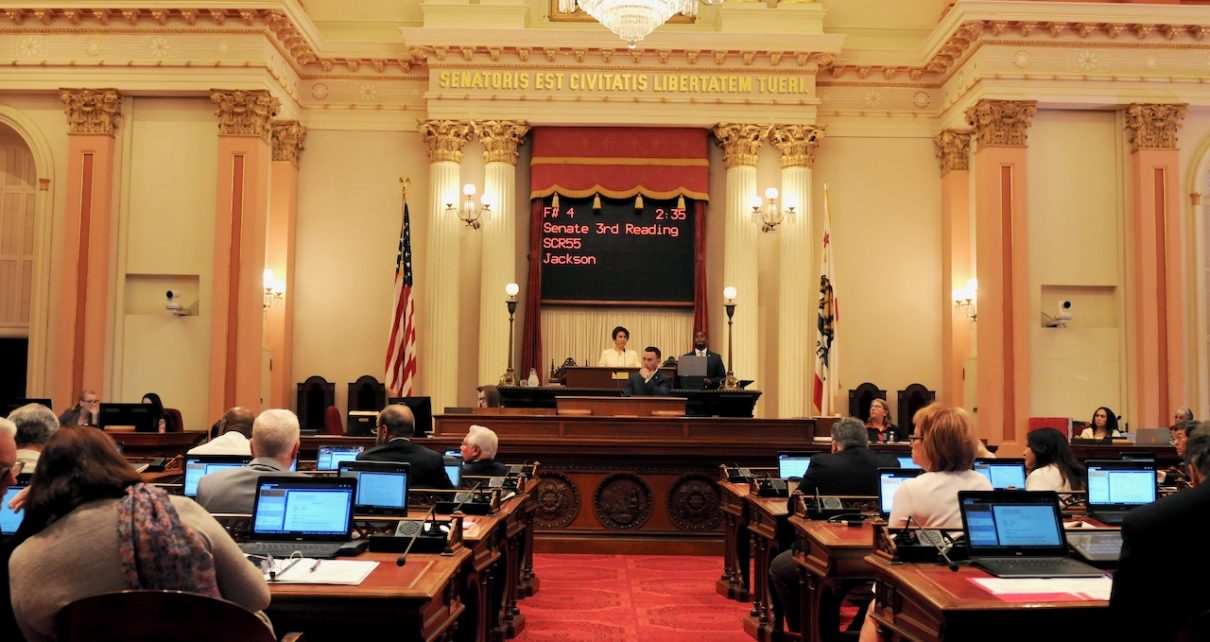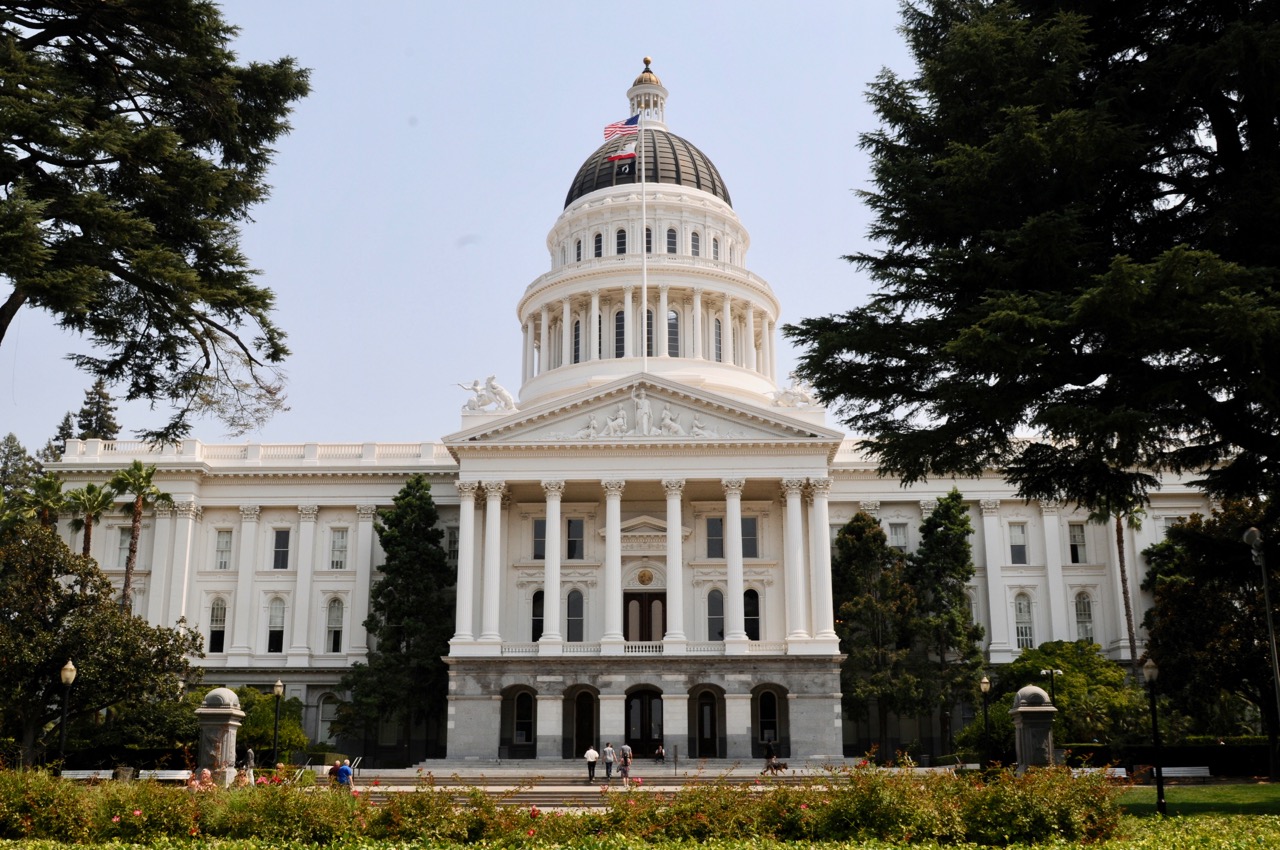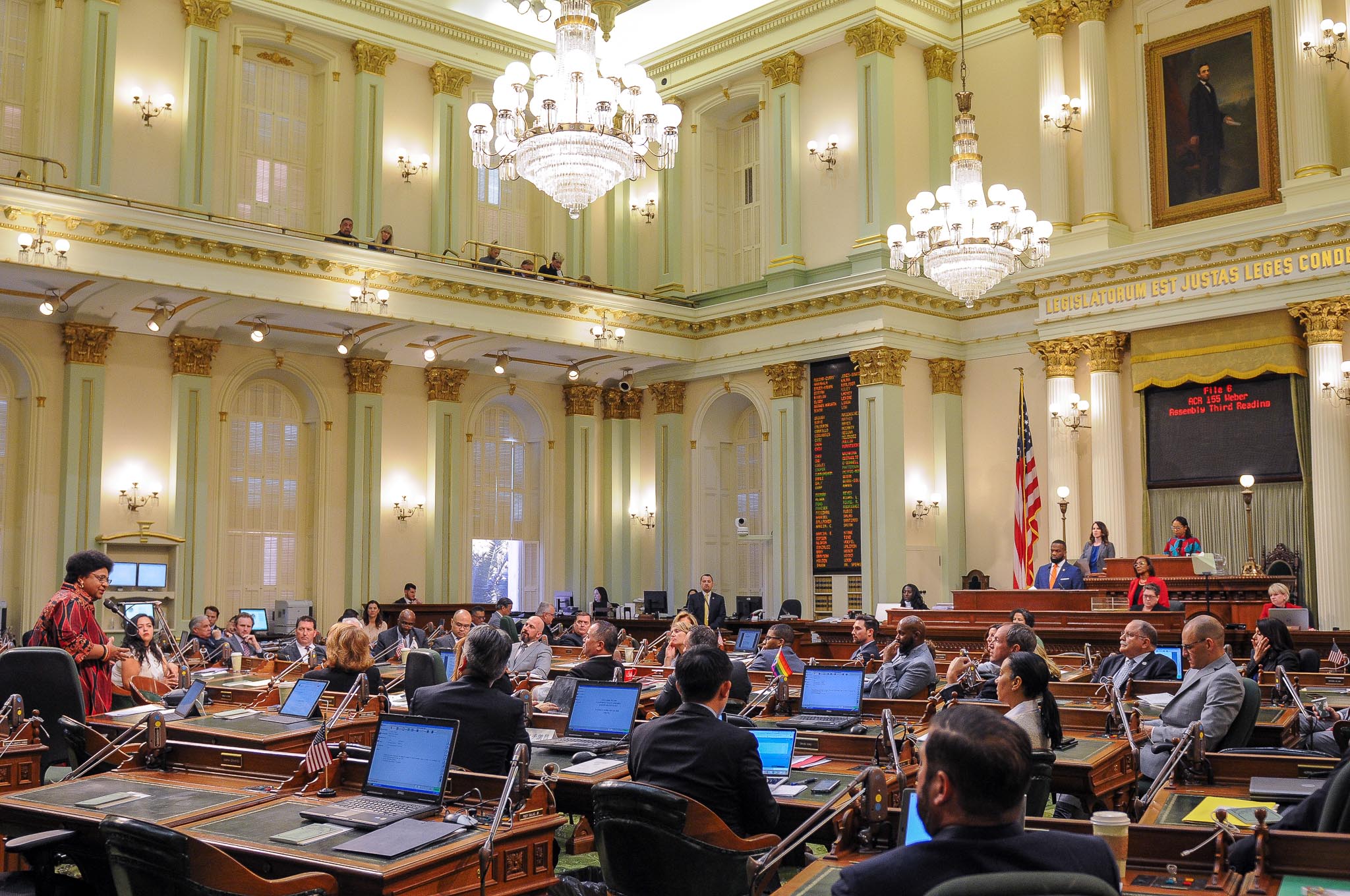
California State Senate. (Photo: Kevin Sanders for California Globe)
Are Certain Special Statute Statements Sufficient?
Not any bill can be given a special statute designation
By Chris Micheli, September 12, 2022 6:17 am
In the California Legislature, there are “special statute” bills that are used when legislators believe a bill’s provisions are unique and should apply in only a specified circumstance or to a specified entity or jurisdiction. Not any bill can be given a special statute designation.
Instead, legislators have guidance in what constitutes a special statute bill and the requirements that must be met for designating a bill as a special statute measure. This guidance is found in the California Constitution in Article IV, Section 16, which provides in full:
All laws of a general nature have uniform operation. A local or special statute is invalid in any case if a general statute can be made applicable.
Therefore, if a special statute is required for certain, unique reasons, the bill states that it is a “special statute,” along with a brief explanation why a general statute cannot apply in this circumstance.
How does a special statute bill look in practical terms? At the end of the bill, in what the Office of Legislative Counsel calls a “plus section,” there will be the following language: “The Legislature finds and declares that a special statute is necessary and that a general statute cannot be made applicable within the meaning of Section 16 of Article IV of the California Constitution because …”
The following are two recent examples of special statute language that are contained in bills pending on the Governor’s Desk:
The Legislature finds and declares that a special law is necessary and that a general law cannot be made applicable within the meaning of Section 16 of Article IV of the California Constitution because of the unique circumstances facing the County of Riverside.
The Legislature finds and declares that a special statute is necessary and that a general statute cannot be made applicable within the meaning of Section 16 of Article IV of the California Constitution because of the uniquely severe shortage of available funding and resources for the development and preservation of affordable housing and the particularly acute nature of the housing crisis within Los Angeles County.
These two examples raise the question whether the explanations being provides is sufficient. Who will make that determination? Ultimately, it will be up to a trial court judge or appellate court justices to decide. What does the judicial branch have for guidance in making that determination? Not much.
Bills in the California Legislature have long used statements to explain the special statute designation. In theory, the special statute designation would be explained by differentiating it from a general statute, and why a general statute could not be made applicable.
This raises the question whether the statements following the legislative finding and declaration that “a special statute is necessary” are sufficient.
As opposed to the constitutional provision for urgency statutes, which are required to have a statement of facts justifying the urgency status of a bill, no such language is in Section 16 concerning general and special statutes. As a result, is a statement actually necessary?
Because all of the bills that are special statutes do include standardized language (i.e., finding and declaring that a special statute is necessary and that a general statute cannot be made applicable), that may be all that is needed under the state Constitution.
On the other hand, if statements explaining why a special statute is necessary are going to be used in bills, perhaps the better approach would be a full sentence or two explanations. In the first example above, the language merely says, “because of the unique circumstance facing the County of Riverside.” Of course, that begs the question, “what are those unique circumstances”? Would it not be better to add a sentence or two explaining what the unique circumstances are?
In the second example above, there is an explanation of the unique set of circumstances in the County of Los Angeles. And, a member of the judiciary would be able to understand the basis for the Legislature’s designation of that particular bill as a special statute. Even better would be to ensure that the committee and floor analyses made at least a short statement explaining that the bill has been deemed a special statute and the reason for it. In this way, any judicial branch review of the special statute designation would have sound footing to be accepted.
As a final note, a recent bill pending on the Governor’s Desk references legislative findings and declarations contained in Section One of the bill, which provides additional information to describe the unique nature and need for the special statute designation. That bill contains the following section:
The Legislature finds and declares that a special statute is necessary and that a general statute cannot be made applicable within the meaning of Section 16 of Article IV of the California Constitution because of the unique circumstances, described in Section 1 of this act, in the South Bay Cities region of the County of Los Angeles.
The above may serve as an example for future legislation:
- Designating ‘Spot’ Bills in the California Legislature - March 2, 2026
- Regulatory Powers of the Fish and Game Commission - March 2, 2026
- Committee Versus Floor Lobbying - March 1, 2026





One thought on “Are Certain Special Statute Statements Sufficient?”